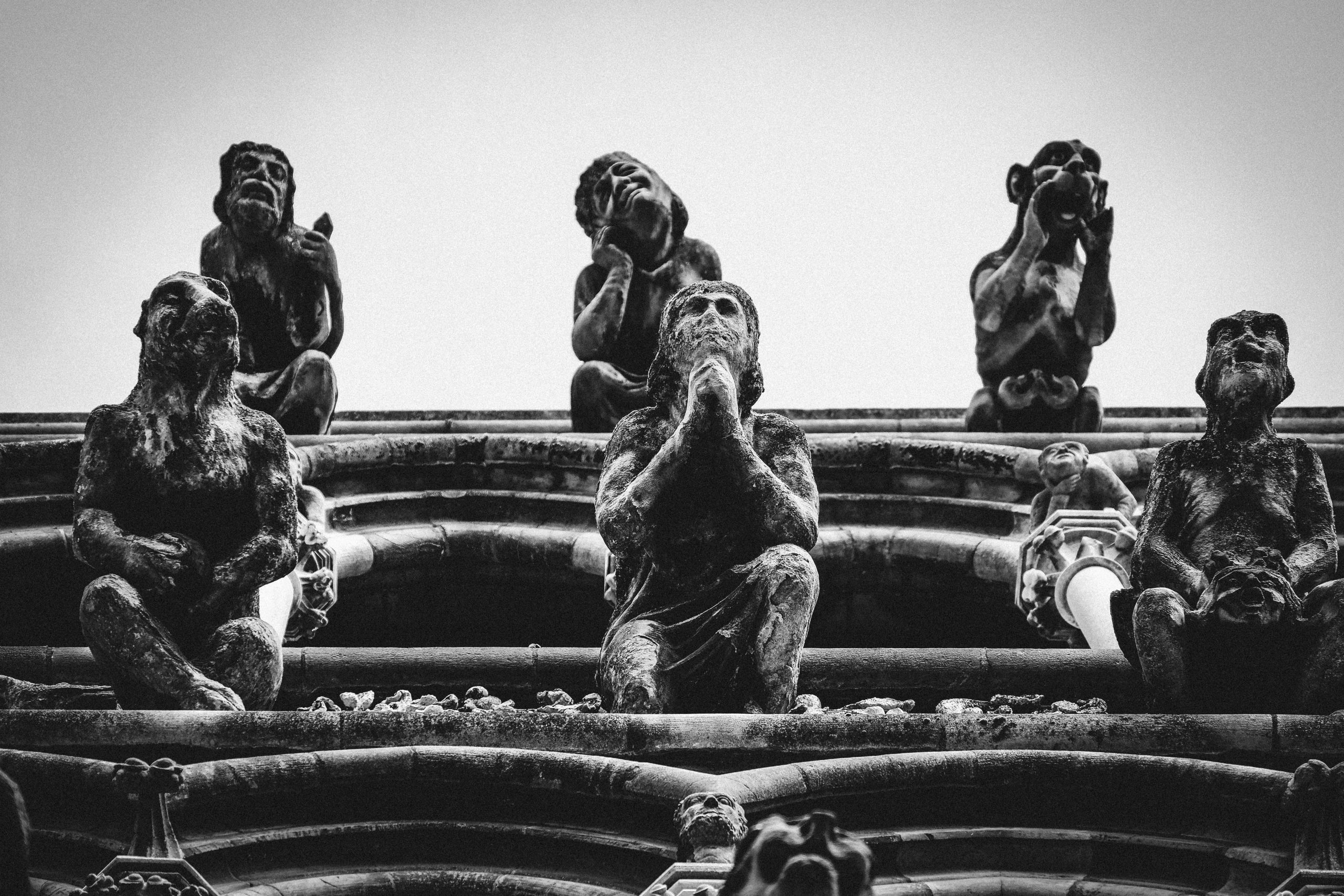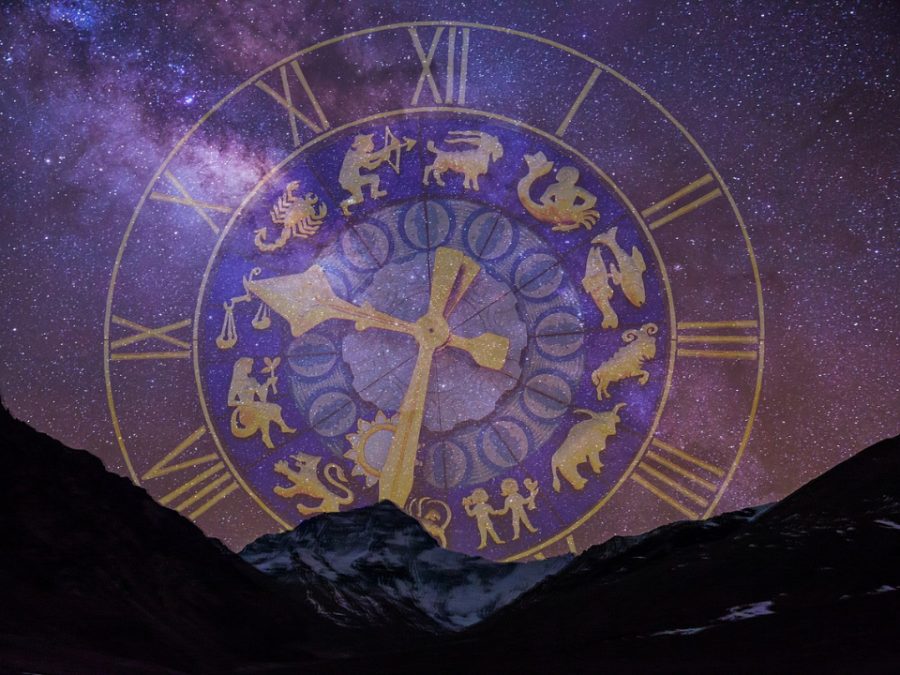
Philanthropy and its statues
June 17, 2020
A statue is just a symptom
June 26, 2020I’ve just been corresponding with someone who believes in astrology. This post asks about its scientific credentials.
In an earlier post I described an experience back in the 1980s, when no less an authority than Russell Grant informed me, via a local newpaper’s horoscope, that my wife Marguerite was going to have an active love life and I wasn’t. Fortunately I had no intention to take it seriously.
Astrology and the gods
Astrology is a long tradition, going back to ancient Babylon. The Babylonians believed the stars were gods. Together with the other gods they determined events in human life. On this basis it made sense to believe that when a particular star was in the ascendant it had greater influence on human behaviour. Mars, for example, might make us more militaristic. Venus, ditto.
Astrology and mathematics
Early and medieval Christianity discouraged it. It was revived during the Renaissance, but in a different form. Rather than being individual self-willed agents, the stars were part of a unified system where the different parts of the universe affect each other. Instead of praying to them or offering them sacrifices, Renaissance astrologers engaged in detailed mathematical calculations to establish correspondences.
The churches disapproved, usually in defence of free will. Astrologers defended themselves by claiming that they were not foretelling inevitable futures. Rather, they were helping people to make the most of life by understanding what kind of person they were – typically by calculating the positions of the planets at the time of a person’s birth.
Astrology and science
How scientific is it? Modern science has a method. You ask a question; accumulate large quantities of relevant data; look for patterns in the data; think up hypotheses to explain the patterns; and devise experiments to check the hypotheses.
Renaissance astrologers did this; indeed, some historians have argued that they were the first people to develop this scientific method. Keith Thomas’ Religion and the Decline of Magic describes how they
listed all the great plagues of the past. They compared them with what was known about the positions of the heavenly bodies at the time, and arrived at a correlation between the two. Thereafter they felt able to predict both the instances and the duration of any serious outbreak.
The main problem was that
life moved too slowly for quick results. If the great conjunction of Saturn and Jupiter only occurred once every 8,000 years, observed John Selden, it was going to be difficult to verify or refute any theories relating to it.
Most scientists today think there is no convincing evidence for the correlations astrologers claim.
Is it still possible?
Many people go further, to say astrology has been scientifically disproved. This however is an error stemming from mistaken beliefs about science.
Scientists keep discovering things and processes that were previously unknown. The list is huge, and growing all the time.
Let us be clear what this means. It means that, at any one stage, scientists understand that reality is far more complicated than they know. Things are going on that they don’t know about. If they didn’t believe this, there would be no point in scientific research.
Before the 20th century their predecessors imagined the universe to be much simpler. Following the lead of the early seventeenth century theorist Francis Bacon, they characteristically thought of scientific research as a limited endeavour. One day, they believed, they would have the universe sewn up and the job would be completed. Scientists would then be able to reorder the natural environment in the interests of human happiness.
Many aspects of this earlier theory remain popular today, despite the fact that it is quite different from what scientists actually do. The aspect I am concerned about here is the belief that if a theory can’t be proved by science, it must be false.
This mistaken belief is the basis for claiming that science has disproved astrology. And, for that matter, homeopathy, clairvoyance and telepathy.
I am not arguing that these things are therefore true. My point is that they are a small number of possible processes, out of a much larger number that scientists don’t know about. Many new processes will no doubt be discovered in the future. We have no reason to suppose that they will ever find out about all of them.
Why stars?
This means that human events may correlate with any number of things for all we know. We could look for correlations between human events and, say, the patterns of clouds or the distribution of prime numbers. Why pick on the stars?
The historical answer is clear enough. The astrological tradition derives from ancient Babylonians, who believed the stars were gods deliberately intervening. Unless we believe that, we have no theoretical reason for looking for the correlations there rather than anywhere else.
But meanwhile, an immense amount of research has been done and some people believe the correlations with the stars are too strong to be denied. However they are a minority. Most people are not convinced.
Does it matter?
Science cannot disprove astrology. Does it matter? I suggest that there are two ways it does.
The first is not specific to astrology but is too important to omit. By exaggerating the power of modern science, Western society has permitted itself to dominate the rest of the world, imposing its lifestyles on it. We now know that we are trashing the planet. Covid-19 is nothing compared with what is to come if we revert to last year’s commitment to industrial production and economic growth. We need to face up to the fact that human life is maintained by processes incomparably more complex than everything scientists know. Imagining that science has the universe sewn up, or will do soon, has handed it over to destructive control freaks. We need to rediscover a humility proper to the limits of human knowledge.
The second is more personal. Late medieval church leaders were right to defend human free will against determinist astrology. Non-determinist astrologers were right to help people reflect on their decision-making in the light of their personalities. My own experience convinces me that some people have a natural flair for understanding what the person in front of them is like, and are good at offering advice in ways that science cannot explain. They often attribute their skills to the stars, or for that matter tealeaves or Tarot cards, techniques about which I remain sceptical. However we live in a society that discourages personal reflection on what we are like, and how therefore we should direct our lives. Reflection of this type is something we all need to do. We are helped best by people with a deep understanding of the nature and purpose of human life.




